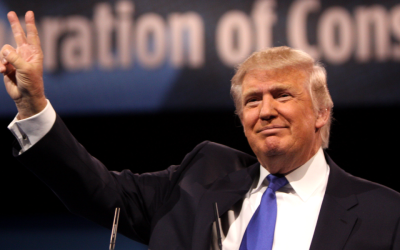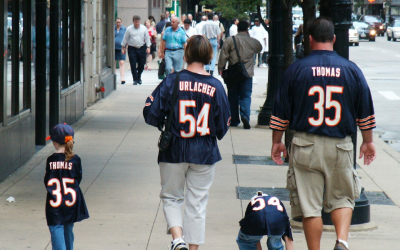Once upon a time, the media would have to get creative in how they spun the facts to achieve a desired narrative.
However, in today’s landscape, they are just outright lying to their readers.
And now one of the biggest newspapers in the United States is telling anyone who will listen that your boycotts of Bud Light aren’t working.
The undisputed drag queen of beers
When the boycotts of Bud Light began, Leftists decorated as so-called “economic experts” appeared as talking heads on all the cable news and network news shows and lent quotes to digital news and newspapers commenting on the futile nature of the boycotts.
These ideologies masquerading as “unbiased authorities” laughed off the impact of the boycotts and suggested they’d be a mere passing fad leaving no lasting impact.
But two and a half months after the controversy first broke, Anheuser-Busch is still paying a massive price for getting in bed with the far-left.
The company has lost more than $30 billion in market value.
Their stock has been downgraded.
Sales have dropped by at least 20% every week since the Dylan Mulvaney video was discovered – and some weeks the sales decline approached 30%.
And most recently, Bud Light was dethroned from its perch as the undisputed king of beers in the United States – replaced by Modelo as the top selling beer in America.
The bottom line is: the so-called “experts” on MSNBC, CNN, and in The New York Times were all wrong.
The boycotts are having an impact.
Anheuser-Busch placed Bud Light’s Vice President of Marketing on a leave of absence, hired former Republican consultants to formulate a new ad campaign, and are launching it this summer.
Meanwhile, other corporate CEOs are either backing away from woke initiatives – or at least not openly bragging about them to avoid being “Bud Lighted.”
WaPo to the rescue!
However, you wouldn’t know any of this if you read The Washington Post.
WaPo is trying to convince its readers that the boycotts have nothing to do with Anheuser-Busch’s latest struggles – the timing is just a coincidence they say.
Bud Light has been targeted by a recent boycott, but consumers might be moving away from the brand anyway amid stagnation for domestic beer in general. https://t.co/DUhhYGEUMm
— The Washington Post (@washingtonpost) June 15, 2023
How does The Post explain away the sudden lack of Bud Light consumption?
Cinco De Mayo and the fact that Americans, apparently, on a dime, stopped liking domestic beer at all.
“While recent events may have affected Bud Light sales broad market trends were favoring Modelo even before the Mulvaney controversy,” The Post hilariously wrote. “Asked whether Cinco de Mayo, the Mexican holiday, contributed to Modelo’s May success, [Dave Williams, vice president of analytics and insights at Bump Williams] said: ‘Modelo has been on a steady rise for a long stretch now, and while holiday-timed executions can lead to some lift in sales, they continued to perform after Cinco de Mayo just as well.’”
WaPo is putting too much stock into this number-one ranking for Modelo and basing its entire argument around that.
According to NIQ data, Modelo accounts for 8.4% of all beer sales in the United States – hardly a monopoly on the market or any indication that Americans have given up on domestic brews.
In fact, as the Twitter community notes on WaPo’s tweet points out, other domestic brands have increased by nearly as much as Bud Light has fallen off within the same time period.
Unfortunately, Miller Lite – which experienced a far less publicized woke ad campaign of its own right – has experienced a 20.7% jump and Coors Light a 22% increase in sales since the Bud Light boycott began.
Never let the facts get in the way of a good story
So, WaPo has zero evidence to back up its assertion that Bud Light’s troubles – which just so happened to start the moment the Dylan Mylvaney video hit social media – are more of a systemic move to Mexican beers than a rejection of woke culture.
The author of the piece, Julian Mark, had two intentions in putting his lies in ink.
First, assuage the nerves of radical Gen Zers who aren’t used to losing political fights.
And second, send a message to corporate CEOs – don’t fret, being woke is still good for business.
Only time will tell if they buy the lies, or start serving their customers instead of boosting their ESG scores.






